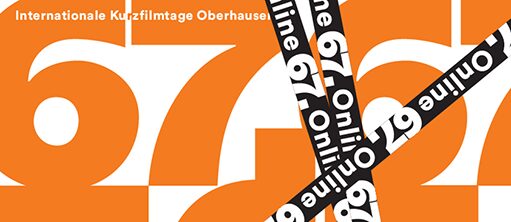Goethe-Institut Presents: In Cooperation with the Short Film Festival Oberhausen

The Goethe-Institut presents Lebanese films at the renowned International Short Film Festival Oberhausen. Curated by Nour Ouayda and Rami el Sabbagh, Prophecies from the Sea sheds light on the prophetic nature of cinematic works created in moments of transition. It is the second iteration of a unique partnership between the Oberhausen Festival and Goethe-Institutes worldwide.
Starting with the 2020 edition of the International Short Film Festival Oberhausen, the festival and the Goethe-Institut have launched a cooperation entitled Goethe-Institut presents… to intensify a decades-long collaboration between the two cultural institutions. With the aim of strengthening both international cultural exchange and the networking of filmmakers, each year a Goethe-Institut abroad presents an insight into the respective artistic scene at the Oberhausen festival.
Against the backdrop of the Covid-19 pandemic, which continues to hamper travelling, this year’s collaboration will be realised in an adapted format and will be presented as part of the online-only edition of the 67th International Short Film Festival Oberhausen, where more than 400 short films, over 190 of them selected for the eight competitions, will be streamed from 1 to 10 May.
Alongside the Festival 2021 programme, Oberhausen, in cooperation with the Goethe-Institut Libanon, presents the film programme Prophecies from the Sea, curated by Nour Ouayda and Rami El Sabbagh.
Prophecies from the Sea focuses on film and video works made in moments of transition, in spaces of transformation that follow catastrophes. Made ‘after’ these incidents, the assumption is that these works only speak of past experiences, but we know that they also conjure future events.
The program proposes that films occupying such liminal spaces become forcibly prophetic since in these instances of catastrophe, time collapses on itself: 2006 echoes 1982 but also 2020 and another date to come. In a landscape where disasters continue to occur, the experience of a film is what renders these premonitions accessible today. The films in this program attempt to carry the catastrophe, whether it appears in the work or not. They are sickened by it, their form is affected and modified by its infinite reverberation through time and place. They not only reveal prophecies, but bear witness to their becoming.
This collaboration between Goethe-Institut Libanon and the International Short Film Festival Oberhausen represents the starting point of an enquiry that has occupied both curators separately for some time - when they programmed together at Dawawine, a space dedicated to performing, sound, and visual arts, which unfortunately closed its doors 2018. They were always preoccupied with apparitions, ghostly presence in cinema and how that speaks to the relation of the past of recorded images and sounds to the present of viewing them - and led them to reflect on some of their questions today.
Divided into two sub-programmes, Prophecies from the Sea will run on the festival’s online platform under two different slots; the first will be online from 3 May, 8 pm until 5 May, 8pm, the second from 4 May, 8 pm to 6 May, 8 pm (CEST).
The Audio-Piece allows the curator’s research to investigate not only works that follow catastrophes, but also a work that called for political struggle, looked at from today’s gaze as a failed utopia. It is a commission for the sound artist and researcher Urok Shirhan to re-edit the soundtrack of the 1971 film A hundred Faces for a Single Day by Christian Ghazi.
Synopsis of the film: Rejecting all propagandistic or narrative convention, Ghazi combines documentary and abstract sequences with a series of discontinuous plot lines to organise an attack on the bourgeois decadence of Beirut’s political milieu. The film’s episodic structure, eerie sound design and daring lead performance become a stinging critique of the revolution’s cultural and political elites. An avant-garde masterwork at its most iconoclastic and exhilarating.
A discussion between Ghada Sayegh, Danielle Davie and the curators, to be presented on the festival's platform in the form of a pre-recorded video, guides the audience into the programme with the aim of proposing several entry points into it.
The Goethe-Institut Libanon is providing a limited number of free passes to the festival for interested people residing in Lebanon. As pre-registration is required via a link sent by the Festival, an email requesting a free pass should be sent to the Goethe-Institut by 26 April, 5.00 pm (EET) at the latest to the following address info-beirut@goethe.de with the following subject 67th Festival Oberhausen.